Apple
How to submit an article:
- Registered users can submit any published journal article that has a unique DOI (Digital Object Identifier) name or link to Research Hub.
- For example, you can paste the full DOI link:
https://doi.org/10.1109/5.771073or just the DOI name:10.1109/5.771073into the field above and click submit. - The person who is first to submit a valid article to Research Hub will forever be credited for it, and every article submission earns you +6 Research Points.
Sub-Topics:
Related Topics
Published research studies are articles that present the findings of original research that has undergone a peer-review process and has been made publicly available in scholarly journals, books or other media.
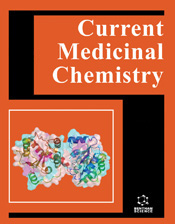
The Effects of Apple Cider Vinegar on Cardiometabolic Risk Factors: A Systematic Review and Meta-analysis of Clinical Trials
2023 Oct 11 Current Medicinal Chemistry Dadkhah Tehrani S, Keshani M, Rouhani MH, Moallem SA, Bagherniya M, Sahebkar A
Systematic Review Meta-Analysis Apple Cider Vinegar Blood Sugar Cholesterol HbA1CConsumption of apple cider vinegar significantly improves certain risk factors for cardiometabolic syndrome, notably fasting blood glucose, glycosylated hemoglobin, and total cholesterol.
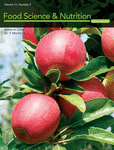
Does an apple a day keep away diseases? Evidence and mechanism of action
2023 Jun 20 Food Science & Nutrition Zhang Y, Zeng M, Zhang X, Yu Q, Zeng W, Yu B, et al.
Review Article Cognitive Function Cardiovascular Disease Hair Growth Cancer AppleEating apples and apple products can enhance health by protecting the cardiovascular system, combating cancer and cognitive impairment, and improving hair growth, among other beneficial effects.

Evaluation of the Safety and Effectiveness of Nutritional Supplements for Treating Hair Loss
2023 Jan 01 JAMA Dermatology Drake L, Reyes-Hadsall S, Martinez J, Heinrich C, Huang K, Mostaghimi A
Dietary and nutritional interventions, including Viviscal, Nourkrin, Nutrafol, Lamdapil, Pantogar, capsaicin and isoflavone, omegas 3 and 6 with antioxidants, apple nutraceutical, total glucosides of paeony and compound glycyrrhizin tablets, zinc, tocotrienol, pumpkin seed oil, Kimchi and cheonggukjang, vitamin D3, and Forti5, showed varying levels of evidence for potential benefits in improving disease course, with rare and mild adverse effects.
Systematic Review Randomised Controlled Trial Hair Loss Pumpkin Seed Oil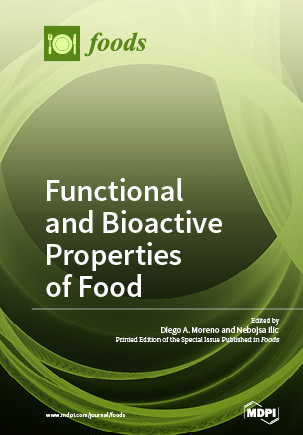
Suitability of Banana and Plantain Fruits in Modulating Neurodegenerative Diseases: Implicating the In Vitro and In Vivo Evidence from Neuroactive Narratives of Constituent Biomolecules
2022 Jul 29 Foods Oyeyinka BO, Afolayan AJ
Anti-Inflammatory Neurodegenerative Diseases Antioxidant Apple Anti-Apoptotic Banana PlantainBananas and plantains contain compounds with anti-inflammatory, anti-apoptotic, and antioxidative properties that hold promise for potentially reversing neurological disorders.
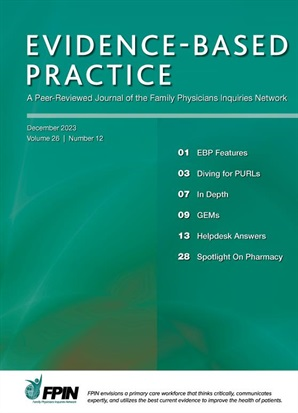
In adults, does apple cider vinegar consumption increase intentional weight loss?
2022 May 17 Evidence-Based Practice Tran R, Tyler C
Apple Cider Vinegar ObesityResearch insights are moderated by the Research Hub team and offer an at-a-glance overview of interesting research findings.

2023 Current Medicinal Chemistry
Consumption of apple cider vinegar significantly improves certain risk factors for cardiometabolic syndrome, notably fasting blood glucose, glycosylated hemoglobin, and total cholesterol.
Systematic Review Apple Cider Vinegar Blood Sugar Cholesterol HbA1C
The Effects of Apple Cider Vinegar on Cardiometabolic Risk Factors:
A Systematic Review and Meta-analysis of Clinical Trials
Dadkhah Tehrani S, Keshani M, Rouhani MH, Moallem SA, Bagherniya M, Sahebkar A

2023 Food Science & Nutrition
Eating apples and apple products can enhance health by protecting the cardiovascular system, combating cancer and cognitive impairment, and improving hair growth, among other beneficial effects.
Review Article Cancer Cardiovascular Disease Cognitive Function Hair Growth
Does an apple a day keep away diseases? Evidence and mechanism of action
Zhang Y, Zeng M, Zhang X, Yu Q, Zeng W, Yu B, et al.

2022 Foods
Bananas and plantains contain compounds with anti-inflammatory, anti-apoptotic, and antioxidative properties that hold promise for potentially reversing neurological disorders.
Anti-Apoptotic Anti-Inflammatory Antioxidant Banana Neurodegenerative Diseases
Suitability of Banana and Plantain Fruits in Modulating Neurodegenerative Diseases: Implicating the In Vitro and In Vivo Evidence from Neuroactive Narratives of Constituent Biomolecules
Oyeyinka BO, Afolayan AJ

2022 Nutrients
Apple juice consumed in moderation has been found to positively impact markers of cardiovascular health, potentially influencing risk of cancer and neurodegenerative diseases.
Review Article Apple Juice Cardiovascular Disease Oxidative Stress
Health Benefits of Apple Juice Consumption: A Review of Interventional Trials on Humans
Vallée Marcotte B, Verheyde M, Pomerleau S, Doyen A, Couillard C

2021 BMC Complementary Medicine and Therapies
Apple cider vinegar intake can significantly decrease total cholesterol and fasting plasma glucose levels contributing to better cardiovascular health among adults.
Systematic Review Apple Cider Vinegar HbA1C
The effect of apple cider vinegar on lipid profiles and glycemic parameters: a systematic review and meta-analysis of randomized clinical trials
Hadi A, Pourmasoumi M, Najafgholizadeh A, Clark CCT, Esmaillzadeh A
Review Articles
Review articles summarise and critically evaluate the current state of research on a specific topic or field by synthesising multiple primary research studies.

The Effects of Apple Cider Vinegar on Cardiometabolic Risk Factors: A Systematic Review and Meta-analysis of Clinical Trials
2023 Oct 11 Current Medicinal Chemistry Dadkhah Tehrani S, Keshani M, Rouhani MH, Moallem SA, Bagherniya M, Sahebkar A
Systematic Review Meta-Analysis Apple Cider Vinegar Blood Sugar Cholesterol HbA1CConsumption of apple cider vinegar significantly improves certain risk factors for cardiometabolic syndrome, notably fasting blood glucose, glycosylated hemoglobin, and total cholesterol.

Does an apple a day keep away diseases? Evidence and mechanism of action
2023 Jun 20 Food Science & Nutrition Zhang Y, Zeng M, Zhang X, Yu Q, Zeng W, Yu B, et al.
Review Article Cognitive Function Cardiovascular Disease Hair Growth Cancer AppleEating apples and apple products can enhance health by protecting the cardiovascular system, combating cancer and cognitive impairment, and improving hair growth, among other beneficial effects.

Evaluation of the Safety and Effectiveness of Nutritional Supplements for Treating Hair Loss
2023 Jan 01 JAMA Dermatology Drake L, Reyes-Hadsall S, Martinez J, Heinrich C, Huang K, Mostaghimi A
Dietary and nutritional interventions, including Viviscal, Nourkrin, Nutrafol, Lamdapil, Pantogar, capsaicin and isoflavone, omegas 3 and 6 with antioxidants, apple nutraceutical, total glucosides of paeony and compound glycyrrhizin tablets, zinc, tocotrienol, pumpkin seed oil, Kimchi and cheonggukjang, vitamin D3, and Forti5, showed varying levels of evidence for potential benefits in improving disease course, with rare and mild adverse effects.
Systematic Review Randomised Controlled Trial Hair Loss Pumpkin Seed Oil
Health Benefits of Apple Juice Consumption: A Review of Interventional Trials on Humans
2022 Feb 16 Nutrients Vallée Marcotte B, Verheyde M, Pomerleau S, Doyen A, Couillard C
Review Article Apple Juice Cardiovascular Disease Oxidative StressApple juice consumed in moderation has been found to positively impact markers of cardiovascular health, potentially influencing risk of cancer and neurodegenerative diseases.

The effect of apple cider vinegar on lipid profiles and glycemic parameters: a systematic review and meta-analysis of randomized clinical trials
2021 Jun 29 BMC Complementary Medicine and Therapies Hadi A, Pourmasoumi M, Najafgholizadeh A, Clark CCT, Esmaillzadeh A
Systematic Review Meta-Analysis Apple Cider Vinegar HbA1CApple cider vinegar intake can significantly decrease total cholesterol and fasting plasma glucose levels contributing to better cardiovascular health among adults.
Clinical Trials
Clinical trials are research studies that involve people and are conducted to evaluate the safety and efficacy of new treatments or interventions, such as drugs, medical devices, or behavioural therapies.

Evaluation of the Safety and Effectiveness of Nutritional Supplements for Treating Hair Loss
2023 Jan 01 JAMA Dermatology Drake L, Reyes-Hadsall S, Martinez J, Heinrich C, Huang K, Mostaghimi A
Dietary and nutritional interventions, including Viviscal, Nourkrin, Nutrafol, Lamdapil, Pantogar, capsaicin and isoflavone, omegas 3 and 6 with antioxidants, apple nutraceutical, total glucosides of paeony and compound glycyrrhizin tablets, zinc, tocotrienol, pumpkin seed oil, Kimchi and cheonggukjang, vitamin D3, and Forti5, showed varying levels of evidence for potential benefits in improving disease course, with rare and mild adverse effects.
Systematic Review Randomised Controlled Trial Hair Loss Pumpkin Seed Oil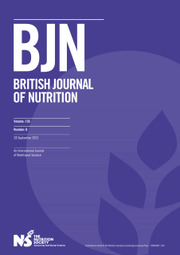
Comparative effects of dried plum and dried apple on bone in postmenopausal women
2011 May 31 British Journal of Nutrition Hooshmand S, Chai SC, Saadat RL, Payton ME, Brummel-Smith K, Arjmandi BH
Randomised Controlled Trial Osteoporosis Bone Mineral Density PlumDried plum consumption enhances bone mineral density in postmenopausal women, primarily by reducing the rate of bone turnover.
Study Protocols
Published study protocols are detailed plans that outline the objectives, methodology, statistical analyses, and organisation of a research study that have been made publicly available for others to review and use as a reference.
Presentation Slides

Systematic Review
Consumption of apple cider vinegar significantly improves certain risk factors for cardiometabolic syndrome, notably fasting blood glucose, glycosylated hemoglobin, and total cholesterol.
Dadkhah Tehrani S, Keshani M, Rouhani MH, Moallem SA, Bagherniya M, Sahebkar A

Review Article
Eating apples and apple products can enhance health by protecting the cardiovascular system, combating cancer and cognitive impairment, and improving hair growth, among other beneficial effects.
Zhang Y, Zeng M, Zhang X, Yu Q, Zeng W, Yu B, Gan J, Zhang S, Jiang X

Bananas and plantains contain compounds with anti-inflammatory, anti-apoptotic, and antioxidative properties that hold promise for potentially reversing neurological disorders.
Oyeyinka BO, Afolayan AJ

Review Article
Apple juice consumed in moderation has been found to positively impact markers of cardiovascular health, potentially influencing risk of cancer and neurodegenerative diseases.
Vallée Marcotte B, Verheyde M, Pomerleau S, Doyen A, Couillard C

Systematic Review
Apple cider vinegar intake can significantly decrease total cholesterol and fasting plasma glucose levels contributing to better cardiovascular health among adults.
Hadi A, Pourmasoumi M, Najafgholizadeh A, Clark CCT, Esmaillzadeh A

Review Article
Eating fruits such as blueberry, prunes, kiwi, and raisins positively influences gut bacteria leading to improved bowel movements and constipation relief.
Katsirma Z, Dimidi E, Rodriguez-Mateos A, Whelan K
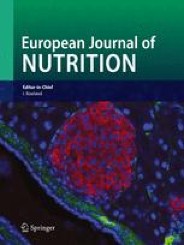
Systematic Review
Apple vinegar consumption has potential health benefits, including weight loss and lower blood glucose levels, with seemingly insignificant side effects.
Launholt TL, Kristiansen CB, Hjorth P
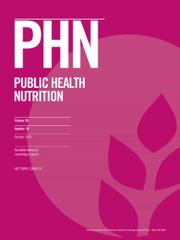
Systematic Review
Eating apples appears to be linked to a reduced risk of cancer in various parts of the body.
Fabiani R, Minelli L, Rosignoli P

Randomised Controlled Trial
Dried plum consumption enhances bone mineral density in postmenopausal women, primarily by reducing the rate of bone turnover.
Hooshmand S, Chai SC, Saadat RL, Payton ME, Brummel-Smith K, Arjmandi BH
Executive Summary
Write an executive summary in the form of a blog article on the topic of "Research into Chinese medicine treatment for Apple" summarising the research below and using language that can be easily understood by patients and avoiding medical jargon using a professional and caring tone of voice.
Write an executive summary in the form of a blog article on the topic of "Researched Chinese medicine treatments for Apple" summarising the research below in an objective and easy to understand way, and using language that can be easily understood by patients. Group the article into Chinese medicine treatments first, followed by nutrition and other treatments. Avoid using medical jargon and use a professional and caring tone of voice.
Write me a concise but easy to understand executive summary on the topic of "Chinese medicine treatments for Apple" based on the following research that I will give you. Your summary should be 2 paragraphs long in Australian English spelling and include references to the studies.
A Systematic Review published in 2023 in the journal Current Medicinal Chemistry found that Consumption of apple cider vinegar significantly improves certain risk factors for cardiometabolic syndrome, notably fasting blood glucose, glycosylated hemoglobin, and total cholesterol. This study applied a systematic review and meta-analysis of clinical trials found in PubMed, Scopus, and ISI Web of Science databases. In this process, trials evaluating the effects of apple cider vinegar consumption on cardiometabolic syndrome risk factors were sought. In total, 25 clinical trials were included in the study, these trials encompassed 1320 adult participants. The consumed apple cider vinegar led to a general improvement in fasting blood glucose, glycosylated hemoglobin, and total cholesterol. However, for body mass index, insulin resistance, serum insulin, triglycerides, low-density lipoprotein cholesterol, and high-density lipoprotein cholesterol, no significant results were observed. Conducting a subgroup analysis, the study identified a significant decrease in fasting blood glucose, glycosylated hemoglobin, total cholesterol, and triglycerides in diabetic patients. Further, it was observed that the apple cider vinegar significantly reduced fasting blood glucose levels regardless of the duration of administration and also decreased triglycerides concentration when consumed for 12 weeks or more.
A Review Article published in 2023 in the journal Food Science & Nutrition found that Eating apples and apple products can enhance health by protecting the cardiovascular system, combating cancer and cognitive impairment, and improving hair growth, among other beneficial effects. The study took a comprehensive approach to evaluate the health benefits of apples and apple products by conducting a literature review of relevant clinical, epidemiological, in vitro, and in vivo studies. It involved an exhaustive search of the PubMed database for a ten-year period, sourcing studies that reported on the effects of different apple products: juices, purees, pomaces, dried apples, and extracts rich in apple bioactives. The findings indicate that the consumption of apples and their derivations contributes to multiple aspects of human health. These products exhibited a range of protective effects against diseases such as cardiovascular conditions and cancer. Moreover, they were associated with enhanced cognitive function, facilitated hair growth, the healing of burn wounds, and improved oral health. The use of apples and apple-based products also helped to reduce UV-induced skin pigmentation, alleviated the symptoms of atopic dermatitis and cedar hay fever, and even prevented skin flushing caused by niacin. The beneficial impacts of apple consumption can be attributed to a variety of mechanisms including, but not limited to, vascular endothelial protection, blood lipid regulation, anti-inflammatory and antioxidant effects, as well as anti-invasion and antimetastatic tendencies. These results provide a significant reference point for various fields, including medicine and nutrition, contributing to their development and application.
A published in 2022 in the journal Foods found that Bananas and plantains contain compounds with anti-inflammatory, anti-apoptotic, and antioxidative properties that hold promise for potentially reversing neurological disorders. The methodology of the study revolved around scrutinizing the bioactive properties found in bananas and plantains. Researchers pinpointed various neuroprotective mechanisms within commonly consumed fruits, specifically bananas and plantains. The study examined protein expression regulation and targeted specific gene pathways, including nuclear and tumor necrosis factors, extracellular signal-regulated and mitogen-activated protein kinases, activator protein-1, and the glial fibrillary acidic protein. In their investigations, they also considered the underutilized peel components of these fruits. The results suggest that the multitude of bioactive compounds found in both the pulp and peels of bananas and plantains perform a variety of beneficial neuroprotective activities. These range from acting as antioxidants, preventing cell death (anti-apoptotic), and reducing inflammation (anti-inflammatory), to directly influencing the functionality of the nervous system (neuromodulatory). This discovery implicates plant-based foods, specifically bananas and plantains, as potentially significant substances in combating, halting, or mitigating the pathological mechanisms underlying neurodegenerative disorders.
A Review Article published in 2022 in the journal Nutrients found that Apple juice consumed in moderation has been found to positively impact markers of cardiovascular health, potentially influencing risk of cancer and neurodegenerative diseases. The methodology of this review involved examining 67 studies focused on the health implications of apple juice consumption, with special attention given to 20 interventional studies conducted on humans. The bulk of the examined studies looked at potential effects relating to oxidative stress markers, with some also looking at effects on inflammatory markers, lipid profile, and diabetes markers. The analysis of the results highlighted a noticeable association between the consumption of cloudy apple juice and markers revealing good cardiovascular health. The positive effects were especially significant in relation to oxidative stress. In addition, apple juice also exhibited beneficial influence on other health indicators like inflammation, lipid profile, and diabetes.
A Systematic Review published in 2021 in the journal BMC Complementary Medicine and Therapies found that Apple cider vinegar intake can significantly decrease total cholesterol and fasting plasma glucose levels contributing to better cardiovascular health among adults. The research process involved a thorough examination of electronic databases such as Medline, Scopus, Cochrane Library, and Web of Knowledge, from their creation until January 2020. The goal was to discover any clinical trial that explored the influence of apple cider vinegar (ACV) on lipid profiles and glycemic indicators. Studies where ACV was combined with other interventions or where the intervention duration was less than two weeks were excluded. To manage the differences between studies, a random-effects model was applied during the meta-analysis process comprising nine studies, including ten study arms. ACV use demonstrated a remarkable decrease in total cholesterol and fasting plasma glucose (FPG) levels. However, there wasn't a noticeable impact observed on LDL-C, HDL-C, fasting insulin concentrations, or HOMA-IR serum levels. When analyzed further, it was found that a reduction in serum TC and TG occurred in a patient subgroup with type 2 diabetes, those who consumed less than or equal 15 mL/day of ACV, and those who consumed it for over 8-weeks. Consequently, a significant decrease in FPG levels was found in studies where participants consumed ACV for more than 8 weeks. Interestingly, FPG and HDL-C levels appeared to increase in participants who were otherwise healthy.
A Review Article published in 2021 in the journal Food & Function found that Eating fruits such as blueberry, prunes, kiwi, and raisins positively influences gut bacteria leading to improved bowel movements and constipation relief. The research was conducted via a comprehensive review of animal and human studies investigating the impact of various fruits on gut motility and intestinal microbiota. Techniques used to gather data included electronic database searches, hand searches, and expert consultation. Fruits evaluated in the review included blueberries, prunes, kiwi fruit, and raisins, with an emphasis placed on their fiber, sorbitol, and (poly)phenol content. Each fruit's influence was studied in relation to its potential to modify gut microbiota and its consequences on gut motility and constipation. In the subsequent analysis, Blueberry powder was found to influence certain gut bacteria like lactobacilli and bifidobacteria, prunes contributed to the growth of bifidobacteria, kiwi fruit impacted Bacteroides, and raisins had an effect on Ruminococcus. Apart from these, other fruits like apples (through apple fiber isolate), oranges (orange extract), and fig (fig paste) were also cited for their crucial effects on gut transit time and overall digestive health. The mechanism behind these effects, the specific components playing a role, as well as the potential synergistic effects of multiple components were also explored, albeit limitedly.
A Systematic Review published in 2020 in the journal European Journal of Nutrition found that Apple vinegar consumption has potential health benefits, including weight loss and lower blood glucose levels, with seemingly insignificant side effects. The researchers performed a systematic search of multiple databases such as PubMed, PsycInfo, CINAHL, and Embase to locate relevant articles about the effects and side effects of consuming apple vinegar on metabolic parameters and body weight. They assessed papers that had both primary outcomes (glycated hemoglobin, postprandial glucose, and other terms for blood glucose) and secondary outcomes (waist circumference, visceral fat, high-density lipoprotein, low-density lipoprotein, triglycerides, and total cholesterol), including studies performed on both humans and animals. Each included human study was evaluated for risk bias using a version of the Cochrane Collaboration's tool. Out of the 487 papers identified, 13 human studies and 12 animal studies were included. The results indicate that consuming apple vinegar may have beneficial health effects, and the side effects appear to be of little concern when ingested in recommended quantities and manners.
A Systematic Review published in 2016 in the journal Public Health Nutrition found that Eating apples appears to be linked to a reduced risk of cancer in various parts of the body. The method applied in this research involved identifying relevant observational studies through a literature search of databases such as PubMed, Web of Science and Embase. Then, a random-effect model was utilized to estimate the cancer risk in different anatomical sites. Moreover, tests were conducted to assess between-study heterogeneity and publication bias. In the discussion of results, forty-one studies were considered, including varied cancer types and sources. A significant reduction of lung cancer risk was observed in relation to high apple consumption in both case-control and cohort studies. However, in the cases of colorectal, breast, and overall digestive tract cancers, significant preventative effect of apples was only found in case-control studies, while prospective studies suggested no effect. There was no evidence of publication bias for colorectal, oral cavity, oesophageal and breast cancer, but the presence of some potential confounding effects related to consumption of other fruits has been recognized.
A Randomised Controlled Trial published in 2011 in the journal British Journal of Nutrition found that Dried plum consumption enhances bone mineral density in postmenopausal women, primarily by reducing the rate of bone turnover. The research studied 160 osteopenic postmenopausal women from 1 to 10 years postmenopause, who were not receiving any hormone replacement therapy or medication affecting bone metabolism. Participants were randomly divided into two treatment groups, one consuming dried plums and the other eating dried apples, with both groups also receiving daily dosages of calcium and vitamin D. Bone mineral density was measured at the beginning and end of the study using dual-energy X-ray absorptiometry. Blood samples were taken at the start, then every 3 months to evaluate bone biomarkers. Physical activity and dietary factors were monitored as potential covariates throughout the study. Dried plums significantly boosted the bone mineral density in the ulna (one of the two bones in the forearm) and spine compared to dried apples. This tendency could only be seen in dried plums - they drastically reduced serum levels of bone turnover markers, specifically bone-specific alkaline phosphatase and tartrate-resistant acid phosphatase-5b. This confirms that dried plums can indeed improve the bone mineral density in postmenopausal women, in part by suppressing the rate of bone turnover.
Moderation Tools
Topic
Sign In
Users not signed in are limited to viewing the 5 most recent items of content.
Wasn't really an article, more of a detailed answer with references to a question —Adrian Y 11 Dec 2023